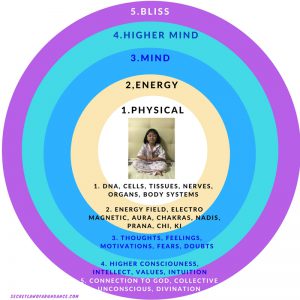What makes you happy? Let’s explore the journey of the pursuit of joy and your fulfillment.
Happiness ia a profound and elusive emotion, is the ultimate pursuit for many individuals across the globe. The quest for happiness has been a central theme in philosophy, psychology, and self-help literature.
What makes people happy is a complex interplay of genetics, environment, mindset, and lifestyle choices. In this article, we will explore the multifaceted aspects of happiness, delving into the science behind it, the importance of positive relationships, the role of gratitude and mindfulness, and how simple pleasures in life can bring immense joy.
Understanding Happiness: A Scientific Perspective
From a scientific viewpoint, happiness is not just a fleeting emotion but a state of overall well-being and life satisfaction. Researchers in the field of positive psychology have identified several key factors that contribute to happiness, including genetic predisposition, life circumstances, and intentional activities. While genetics play a role in determining our baseline level of happiness, intentional activities such as cultivating positive relationships and practicing gratitude can significantly enhance our overall sense of well-being.
The Power of Positive Relationships
One of the fundamental sources of happiness lies in our relationships with others. Meaningful connections with family, friends, and romantic partners provide emotional support, foster a sense of belonging, and create lasting memories. Positive social interactions trigger the release of oxytocin, often referred to as the “love hormone,” which enhances feelings of trust and bonding. Nurturing healthy relationships and spending quality time with loved ones are essential ingredients for a fulfilling life.
Gratitude and Mindfulness: Cultivating Inner Peace
Practicing gratitude is a powerful tool for enhancing happiness. By acknowledging and appreciating the positive aspects of our lives, we shift our focus from what we lack to what we have. Keeping a gratitude journal, where one records things they are thankful for daily, has been shown to increase overall happiness and life satisfaction. Mindfulness, the practice of being fully present in the moment, also contributes significantly to happiness. Mindful individuals tend to experience less stress, greater life satisfaction, and improved overall well-being.
The Pursuit of Passion and Purpose
Engaging in activities that align with one’s passions and values can bring profound happiness. Pursuing hobbies, interests, or careers that provide a sense of purpose and fulfillment leads to a deep sense of satisfaction. Whether it’s painting, writing, volunteering, or any other creative endeavor, finding meaning in what we do enhances our overall sense of well-being. Additionally, contributing to the well-being of others through acts of kindness and altruism creates a positive feedback loop of happiness and fulfillment.
Embracing Simple Pleasures
Happiness often resides in the little things in life. A warm cup of tea on a rainy day, a heartfelt conversation with a friend, or the joy of witnessing a beautiful sunset—these simple pleasures can bring immense happiness. Cultivating mindfulness and being present in these moments amplifies their impact, allowing us to derive greater satisfaction from everyday experiences. Learning to appreciate life’s small joys is a skill that can significantly enhance our overall happiness quotient.
The Impact of Health and Well-Being
Physical and mental health are foundational pillars of happiness. Regular exercise not only improves physical health but also boosts the production of endorphins, the body’s natural mood lifters. Adequate sleep, proper nutrition, and stress management are equally important. Mental well-being, including managing stress, anxiety, and cultivating resilience, plays a vital role in happiness. Seeking professional help when needed and practicing self-compassion are essential steps toward lasting happiness.
Conclusion
In the pursuit of happiness, it’s crucial to recognize that it’s not a constant state but a fluctuating emotion influenced by various factors. Understanding the science of happiness, nurturing positive relationships, practicing gratitude and mindfulness, pursuing passions, embracing simple pleasures, and prioritizing health and well-being are all integral components of a fulfilling life.
Ultimately, happiness is a deeply personal and subjective experience. What brings joy to one person may not necessarily bring the same level of happiness to another. It’s about discovering what resonates with your soul, cultivating a positive mindset, and appreciating the beauty of life in all its forms. As individuals, we have the power to shape our own happiness by making mindful choices and appreciating the present moment. In this ongoing journey toward happiness, remember that it’s not about the destination but the experiences and connections that enrich our lives along the way.

